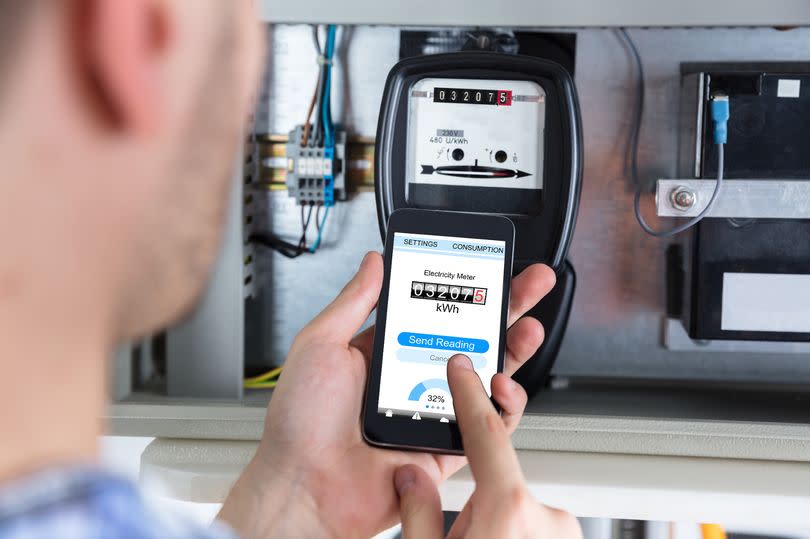Households urged to send meter readings this week as energy price cap drops

Households have been urged to send meter readings to their energy supplier as the new energy price cap comes into effect today, Monday July 1.
Ofgem has lowered its price cap in response to wholesale prices, meaning that the average household energy bill has fallen by 7% as of Monday. The regulator has dropped the cap from £1,690 for a typical dual fuel household in England, Scotland and Wales to £1,568, spelling savings of £122 over the course of a year, although this will change again in October as the price cap is updated every three months.
The actual rates you are charged will depend on where you live, how you pay your bill and the type of meter you have. Some 10 million households in the UK on a standard variable tariff have been advised to submit their electricity and gas readings to their supplier as close as possible to July 1 if they do not have a smart meter, in order to make sure they are billed correctly at the new lower prices.
READ MORE: Millions of DWP Universal Credit claimants to have bank statements checked - here's why
Get all the latest money news and budgeting tips from Chronicle Live with our free newsletter
Energy experts have warned that those who do not submit readings risk having some of their usage after July 1 charged at the previous, more expensive rates. Suppliers who have not received meter readings base their bills on estimated usage, meaning households could be overpaying, while others may not be paying enough.
The average household is expected to spend £83 on energy in July, compared with £127 in June, due to the lower cap and lower usage due to warmer weather, according to comparison site Uswitch. While the latest fall spells further relief for households following a previous drop in April, analysts have warned that Ofgem is expected to increase the price cap in October, before dropping it again in January 2025.
Uswitch has also urged households to investigate other tariffs, including fixed deals, to beat the predicted October price hikes. Ben Gallizzi, energy spokesman at Uswitch, said: "There are a number of fixed tariffs worth considering right now. By opting for a fixed deal, you're locking in those rates for the duration - usually 12 months - which means households could have price certainty and avoid the ups and downs of the price cap."
Households with smart meters don't need to act, as these devices regularly send meter readings to your energy provider automatically. However, MoneySavingExpert advises that you could take the opportunity of the price cap drop to ensure your smart meter is still working as it should, by checking the readings on your account or bill.
The MSE team also explained that energy suppliers can be particularly busy on the day a new price cap comes into effect, meaning you may struggle to get through on the phone or access the website, but many major suppliers allow you to backdate your reading if you submit it at a later date instead. Both E.on Next and Octopus Energy will backdate meter readings up to a week after July 1, while EDF will do the same until July 9 and British Gas until July 14.

 Yahoo News
Yahoo News 
